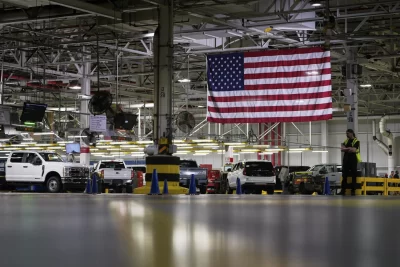
BUDAPEST, Hungary — Chinese leader Xi Jinping will spend the bulk of his five-day tour in Europe this week in two small countries at the continent’s eastern half, a region that Beijing has used as a foothold for its expanding economic ambitions in Europe.
Following a stop in Paris on Monday to kick off his first European trip in five years, Xi will then travel to Hungary and Serbia, two nations with autocratic leaders that are seen as China-friendly and close to Russian President Vladimir Putin.
As mainstream European leaders have pursued more protectionist policies to limit Beijing and Moscow’s reach on the continent, the governments of nationalist conservative leaders Viktor Orbán of Hungary and Aleksandar Vučić of Serbia have vigorously courted economic ties with China, inviting major investments in infrastructure, manufacturing, energy and technology.
As the first European Union country to participate in Xi’s signature Belt and Road Initiative, Hungary has straddled a middle ground between its membership in the EU and NATO, and an unusual openness to diplomatic and trade relationships with eastern autocracies.
Tamás Matura, a China expert and associate professor at Corvinus University in Budapest, said that Hungary’s hosting of major Chinese investments and production sites — and its agnosticism on doing business with countries with spotty democratic and human rights records — has opened a crucial door to China within the EU trading bloc.
“The Hungarian government is the last true friend of China in the whole EU,” Matura said. “It is very important now to the Chinese to settle down in a country that is within the boundaries of the EU … and is friendly to the Chinese political system.”
One of the major benefits to China of establishing bases within the EU: avoiding costly tariffs. The European Commission, the bloc’s executive arm, is mulling raising duties on the import of Chinese electric vehicles (EVs) from its current 10% to protect the European auto manufacturing market — a mainstay for Germany, the 27-member EU’s largest economy.
Yet in December, Hungary announced that one of the world’s largest EV manufacturers, China’s BYD, will open its first European EV production factory in the south of the country — an inroad into the EU that could upend the competitiveness of the continent’s auto industry.
That shift is already visible in Budapest, where one car dealership has begun scaling down its supply of European vehicles and instead introducing models produced by BYD.
Márk Schiller, the strategy and marketing director for the family-owned Schiller Auto Group, said he believes that European carmakers are “already behind” China in transitioning to EV production. His company recently stopped selling cars made by German carmaker Opel, and switched to BYD.
“This was a huge shift,” Schiller said.
Unconfirmed reports suggest that during Xi’s visit to Hungary from Wednesday to Friday, he and Orbán will announce another EV manufacturing investment involving China’s Great Wall Motor. Orbán’s office didn’t respond to multiple requests for information on the schedule of the visit.
In Serbia, to Hungary’s south, China runs mines and factories across the Balkan country, while billions more in infrastructure loans have funded roads, bridges and new facilities.
Hungary and Serbia have an agreement with Beijing to modernize the railway between the countries’ capitals of Budapest and Belgrade, part of a Belt and Road plan to connect with the Chinese-controlled port of Piraeus in Greece as an entry point for Chinese goods to Central and Eastern Europe.
The bulk of the project, which after numerous delays is expected to be completed in 2026, is financed through loans from Chinese banks — the kind of capital that Hungary and Serbia have been eager to utilize.
According to the AidData research lab at William & Mary, a public university in Virginia, Chinese lenders have issued loans worth more than $22 billion to nine countries in Central and Eastern Europe between 2000 and 2021.




